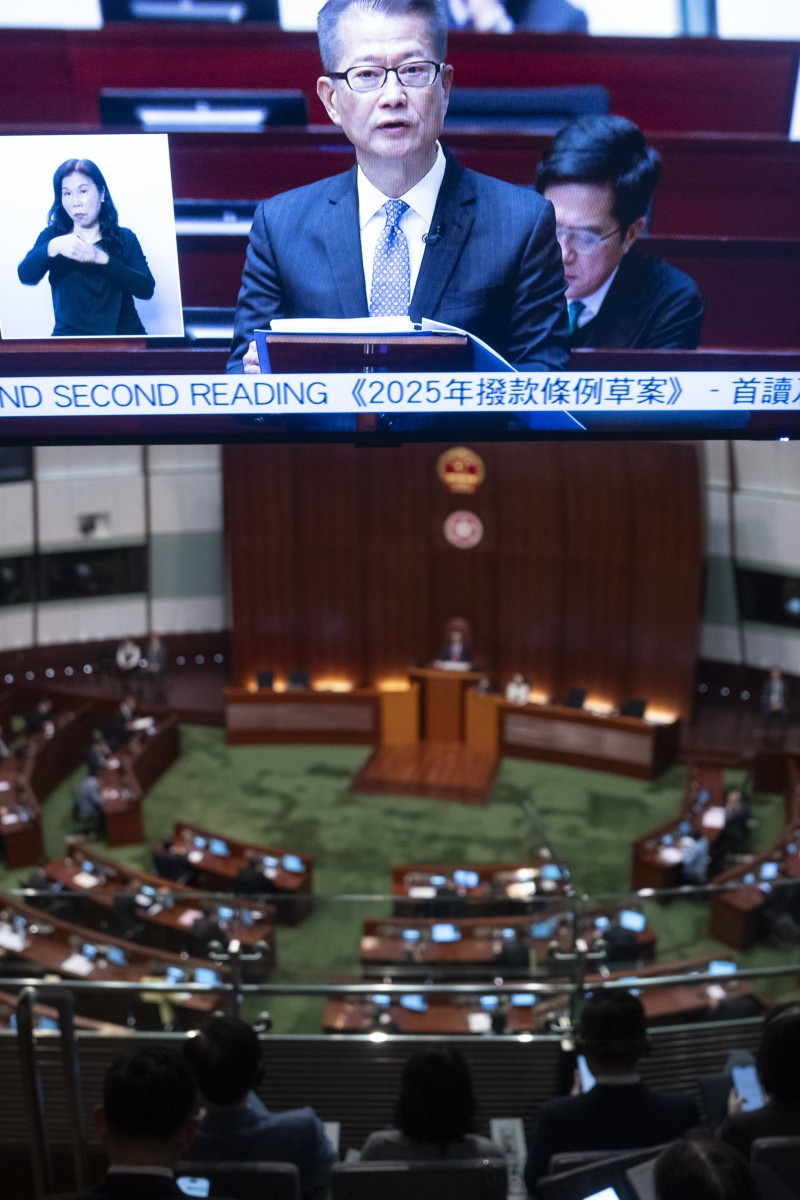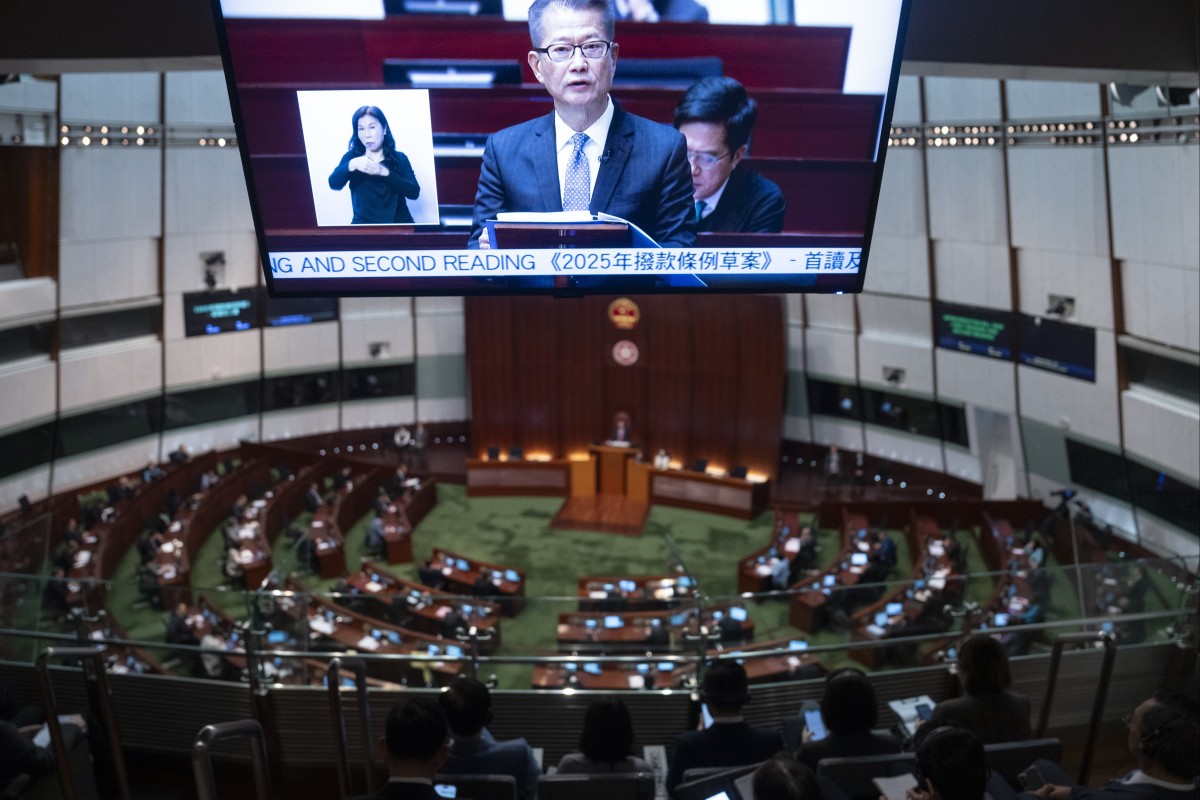
Your Voice: Hong Kong’s budget, benefits of technology (short letters)
This week, students write about Hong Kong’s financial plans, embracing AI, boosting teen self-confidence and working abroad.
 Hong Kong’s budget has faced criticism for neglecting key issues. Photo: EPA-EFE
Hong Kong’s budget has faced criticism for neglecting key issues. Photo: EPA-EFEHave something to say? Send us a letter using this form.
Hong Kong budget fine print
Irene Zhang, Pope Paul VI College
The government has failed to address the current financial difficulties effectively in its budget for 2025 by increasing taxes and reducing welfare and subsidies. This approach can be described as “treating the symptoms, not the cause.”
A closer look reveals that the government is tightening educational spending, from reducing university funding to cutting the HK$2,500 school subsidies. If this trend of reducing education support continues, it could place overwhelming pressure on students.
The government should focus more on improving the efficiency of the Legislative Council system. Many legislative councillors receive relatively high salaries yet demonstrate low productivity.
The government could consider reducing redundant staff to cut labour costs while enhancing overall system efficiency.
While “earning more and spending less” is crucial for addressing the current financial deficit, it is equally important to heed the voices of citizens.
Let us, as Hongkongers, work together to go the extra mile and push for meaningful change.
Examining Hong Kong’s latest budget plans
Embracing AI
Isabella Chong Pak-man, Leung Shek Chee College
As technology develops rapidly, we are becoming increasingly dependent on it. While this reliance brings some adverse effects, it also offers many helpful benefits in daily life.
Artificial intelligence (AI), in particular, is growing more popular, with tools like Google, ChatGPT, DeepSeek and others acting as search assistants. These tools quickly find and summarise information, allowing us to learn much faster.
Among the technological advancements I have mentioned, AI therapy is another type of AI tool worth noting. This form of mental health support uses artificial intelligence to provide personalised guidance and is available 24/7 without needing rest. This can be especially beneficial for people who are busy during the day. Additionally, AI therapy is often more affordable than seeing a psychologist, and some options are even free to use.
In conclusion, it’s undeniable that we can’t escape the use of AI, especially if we want to keep up with the pace of progress and stay competitive in the future. However, it’s crucial to learn how to use AI wisely. We should make good use of these digital tools without letting them control us or diminish our critical thinking skills.
Boosting teen self-confidence
Rainbow Kwok, St Paul’s Secondary School
One of the main reasons why teenagers struggle with self-image is the rise of social media.
During the pandemic, teenagers spent more time on the internet, thus increasing their exposure to apps like Instagram and Snapchat.
From social media’s beauty filters to advertisements for products to get the “perfect” body, teens are bombarded with messages that their looks fall short. By comparing themselves to unrealistic beauty standards, teenagers may feel pressured to alter their appearance through photo-filtering apps or even plastic surgery.
However, certain actions can be taken to tackle the issue. One of them is increasing the number of outdoor activities, such as school picnics.
Not only will it increase students’ incentives to socialise with other people, improving their self-image and self-confidence, but it can also offer them an excellent opportunity to have fun with their peers and reduce academic stress.
It is crucial that teenagers feel comfortable in their own skin and do not struggle with self-image. Besides, teachers and parents must help teenagers tackle problems with their image to develop them into more confident individuals.
Explore, grow and inspire
Angie Wong Tse-kwan, King Ling College
I’m a teenager from Hong Kong, and I want to encourage young people my age to work overseas and explore the world. This experience can bring numerous benefits to both ourselves and society.
First of all, working abroad fosters personal growth. It allows us to learn new skills, meet diverse people and understand different cultures. This makes us more open-minded and adaptable – essential traits in today’s globalised world.
When we return to Hong Kong with the and experience we’ve gained, we can contribute to society. We can introduce fresh ideas, enhance local businesses and help our communities thrive. Young people who work overseas can also inspire others to broaden their horizons.
There are plenty of job options available to us. We could consider teaching English, working in the hotel industry or interning at a tech company. These jobs not only provide income but also offer a chance to experience life in different countries.
In conclusion, working overseas helps us grow as individuals and enables us to impact our communities positively.
